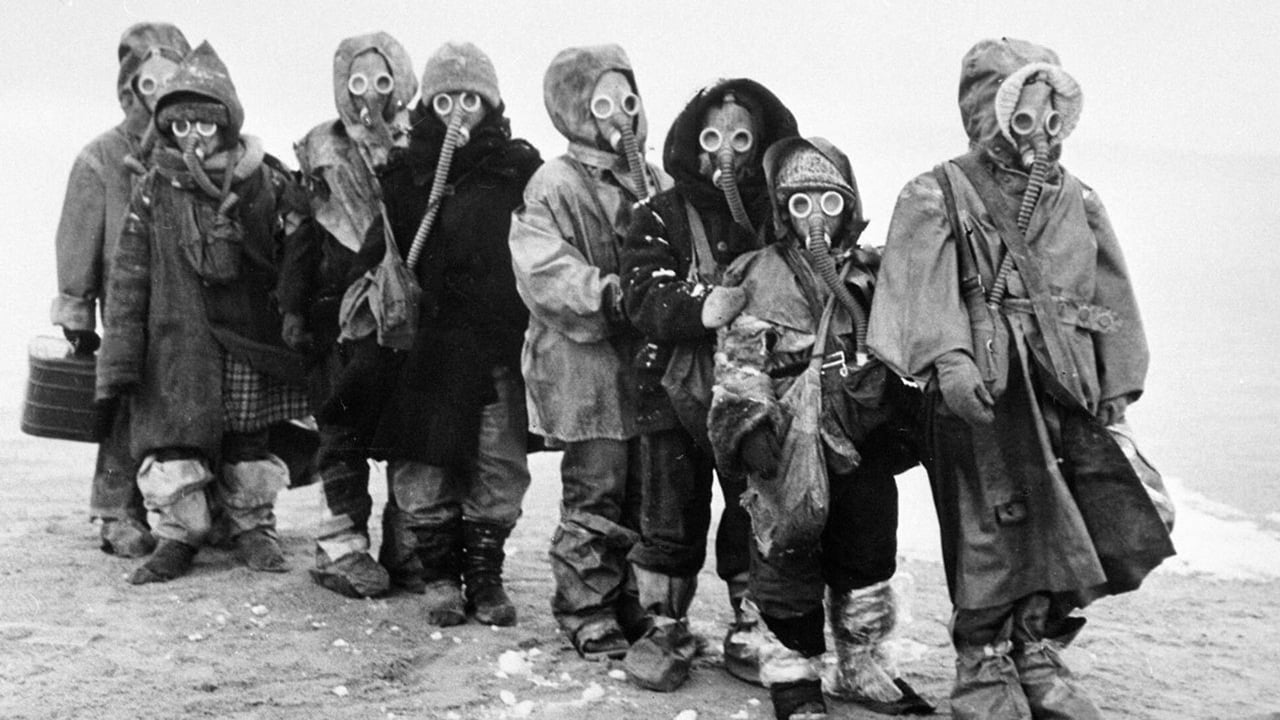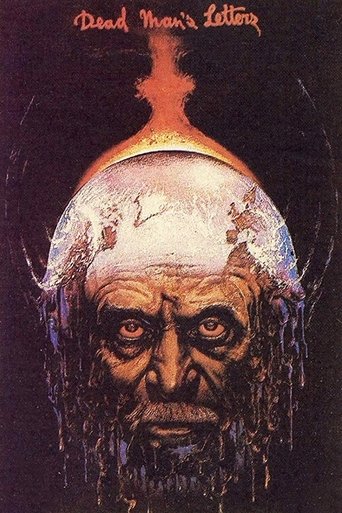Karry
Best movie of this year hands down!
Holstra
Boring, long, and too preachy.
ChicDragon
It's a mild crowd pleaser for people who are exhausted by blockbusters.
Hadrina
The movie's neither hopeful in contrived ways, nor hopeless in different contrived ways. Somehow it manages to be wonderful
Tamas Polgar
To fully understand this movie you should understand the mindset and milieu of the Eastern Bloc - preferably the Soviet Union - of the 1980s, in the height of the Cold War. This movie is radically different from Western post-apocalyptic movies like 'The Day After' or 'Threads' which deal with the very materialistic side of a nuclear holocaust, like the effects of bombs and life after the war. This Soviet movie is not a spectacle and its aim is far from simply entertaining or scaring. It ponders on the philosophic and moral side of a nuclear war, a suicide of mankind and whether it's inevitable or not.There is barely any storyline. The main character is an unnamed scientist who lives in a makeshift shelter under a museum, among saved relics from all eras of history and some of his surviving colleagues. Being all scientists they are trying to grapple the whole point of what happened. There are no names, except for the wife and son of this scientist: Anna and Eric. Eric is presumably dead as he was outside when the bombs exploded. Nevertheless the scientist keeps writing letters to him, in a form of a diary, which is more to save his last thoughts of the world than actually meant to be delivered someday.The pace of this film is just as slow and time would be in such a situation. Soviet art movies were not bound by economic constraints so it did not matter to their makers whether the tickets will sell well or not. Modern moviegoers would find the entire thing profoundly boring, and even the most dedicated movie hipster would look at the clock time to time. Being this slow is part of the image the movie builds. Just like the characters, the viewer is also immersed in an endless waiting, never to know whether something is going to change or happen. You actually have to watch it to the very end to see. Don't expect rich experiences. In such a dull and dead world it's a rare gift to see anything happen.Interestingly, the makers took great care to emphasize that this is not happening in the Soviet Union. Or more exactly, it could happen, but this particular place is not a Soviet city. There is not a single object in the background with Cyrillic letters on it, but there are a lot of things with English labels, some are even consumer goods rare behind the Iron Curtain at that time. German beer cans float in the water - canned beer was a curiosity that time - and a bottle of Jagermeister is seen on a desk. Canned foods are also foreign, with English labels. Even the soldiers carry weapons that look like a crossbreed of American M-16 and M-1 rifles. It's a small detail, but back then every able-bodied Soviet men were familiar with Soviet military equipment, having spent years as a conscript, and this clue is giving away that the scene takes place in a foreign country. Even the military vehicles were selected to keep this illusion. The helicopter is a Ka-26 which was never used by the military (in the Soviet Union at least), the large truck is a MAZ missile trailer, but there was also a civilian version of it. The then- futuristic hovercraft that appears for no apparent reason was an experimental vehicle at the time, but such vehicles were already operating as ferries on the English Channel, and were praised as a great technical advancement of the time.I'd generally recommend this movie for those who are desperate enough to take a plunge into a strange, lost civilization's vision of the violent end of the world. Not a date movie, except if your date is a hardcore movie culture fanatic or grew up in the Soviet Union.
oOgiandujaOo_and_Eddy_Merckx
This is a post-apocalyptic movie where a group of Russian intellectuals, living in the airtight vaults of a museum, cling on in the twilight, going slowly mad according to their own pompous wonts.The movie is unremitting in its depressing depiction of a dead world. I was stuck between turning it off because it was almost sacrilegiously depressing, and remaining because of the sheer cataclysmic beauty. The images are mostly tinted yellow, although some shots are in tints of blue. There is no way this experience is going to allow you the respite of polychromatic images.There is a body of work that deals with the end of humankind in cinema, but any example I can think of seems completely notional in conception, this one actually felt like a recording of the end of days, as unflinchingly profane as a documentary of viaticums.I think it's also a tombstone for communism in Russia, suggested as a blind alley, and advocates a return to pre-revolutionary values regarding family and religion. But only in an intensely personal way, as if recounting the death of a close family member. It is more than a warning against nuclear war. In its parodying of ridiculous, pontificating, and obstructive authority, it's an emesis of authoritarian communism, a whole-hearted, wholesale rejection.As an endnote, there's a dolly-out in the first few minutes of the film that left my jaw on the floor, practically the best shot I've ever seen in cinema, my congratulations to Konstantin Lopushansky and his team.
Coventry
This "Letters from a Dead Man" simply has got to be, hands down, one of the top three most depressing and pessimistic movies I ever encountered in my life. Of all Sci-Fi films dealing with remnants of life after the apocalypse – and believe me they are quite numerous – this Soviet Union produced sleeper upraises the most nightmarishly realistic and harrowing atmosphere ever. Even in your worst imaginable nightmares and premonitions, the post-nuclear existence probably still doesn't look as decayed and melancholic as illustrated here in this film. Survivors are forced to live underground, in the caves and catacombs of destroyed buildings, and have little else to do but watch each other fading away emotionally as well as physically. They can't go the surface without wearing special outfits and gas masks, but even then there's nothing else to do but stroll around between ruins, car wrecks and rotting corpses. With monotonous photography and the exclusive use of a yellow-tinted picture, director Konstantin Lopushansky (an acolyte of the Russian master Andrei Tarkovsky) fabricates the ideally lugubrious ambiance, and he can also rely on the devoted cast and bleakly void screenplay to assist.The story revolves on Rolan Bykov as a scientist – former Nobel Price winner, even – who entrenched himself underneath the remnants of a library building along with his wife and a handful of co-workers. The titular letters are addressed to his son whom the scientist hasn't seen or heard from since the catastrophe. The letters and above all the hope his son is still alive somewhere is what keeps the poor man going, but how long can you hold on to hope when you see everything and everyone around you dying? "Letters from a Dead Man" is a difficult but ultimately very rewarding cinematic experience to endure. Difficult, of course, because of the emotionally devastating imagery and atmosphere, and because there's actually very little substantial content. We literally stare at a handful of people languishing and eventually dying, with only a small hint at hope near the end. And rewarding because of the depiction of genuine humane sentiments and the thought-provoking messages. It's also highly remarkable how "Letters from a Dead Man" remains continuously vague regarding the cause of the apocalypse and eventually even searches the guilt in the own heart. In a time where movies released on the other side of the Iron Curtain (in Europe and particularly the USA) routinely blamed Russia for the potentially upcoming apocalypse, this tale suggests the root cause of the catastrophe lies in a human error during the launch of a space shuttle. The entire cast gives away tremendous performances. I don't know if these people are veteran actors and actresses in their home countries, but their grimaces and catatonic behavior suggest that they were selected especially for this type of discouraging parable. Fantastic film; though obviously not fit for all occasions and/or audiences.
bakadeika
The movie is about fatal for the Mankind consequences of the nuclear war. It is not said explicitly, in which country the plot is set. But from some details you can easily derive, that it was in the USA, for example - the main character says: "...from Niels Bohr to our President..." (Soviet leaders were never called "presidents" in the Soviet Union in 1986). Meanwhile, the reason of the war is stated as accidental and no one seems to be guilty of it: as the main character remembers, an operator of the central control panel desperately cried, that there was a computer mistake and rocket launches should be canceled, but he was late by 7 seconds, because he choked by the coffee and could not shout immediately.The main character is a Nobel Prize laureate in Physics, who feels very confused that his science, either accidentally or not, led the Mankind to such a horror. There are also some other hopeless adults, all they are deeply shocked and desired. The main character try to give a little hope for a small group of children (all of them are shocked and never speak), and writes kind letters to his friend Eric (although there is no hope, that they will be read by someone). All people sit in a dark cellar under a (former) museum of history, some of them sometimes go out in gas-masks and special costumes to exchange canned meal for anesthetics. A strict police regime, the main policy of which being to try to save lives only for few healthy people, leaving ill ones alone and without any help, is established in the destroyed and burnt city. But even this "save lives" means "to hide themselves deeply under the surface of the Earth for more than 30 years". There is no any news, which could provide a hope, that in other parts of the Earth the situation is better.Although quite a few special effects were used, there are some scenes in the film, which are horrible up to such a degree, that I was not calm enough to look at them. In the end of the film I even weeped a bit. I think, that this film should be seen by each human on the Earth. THIS should never be forgotten...

